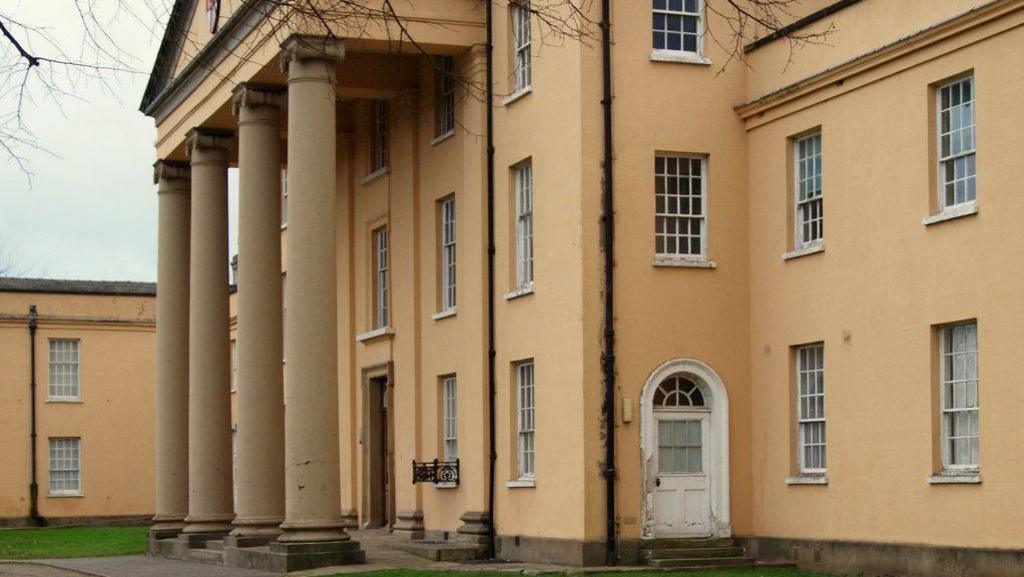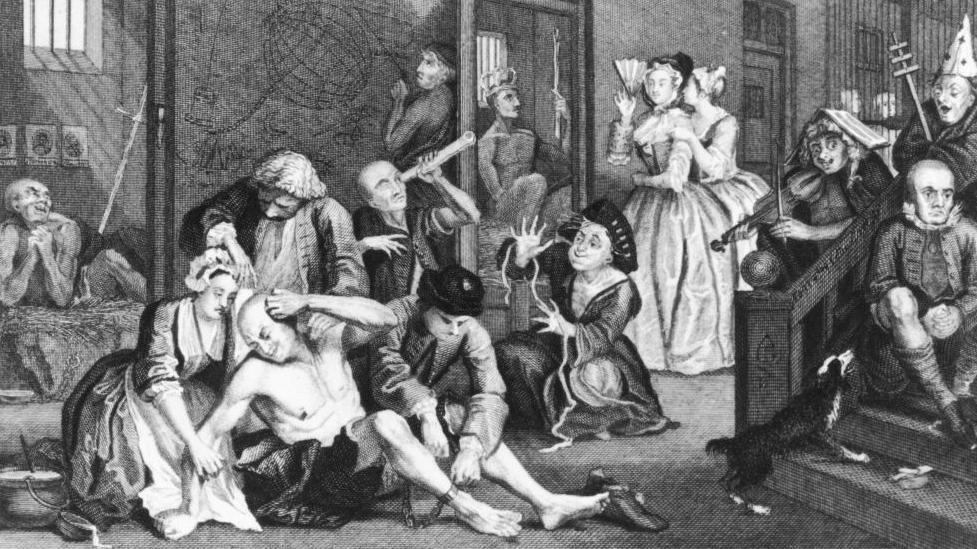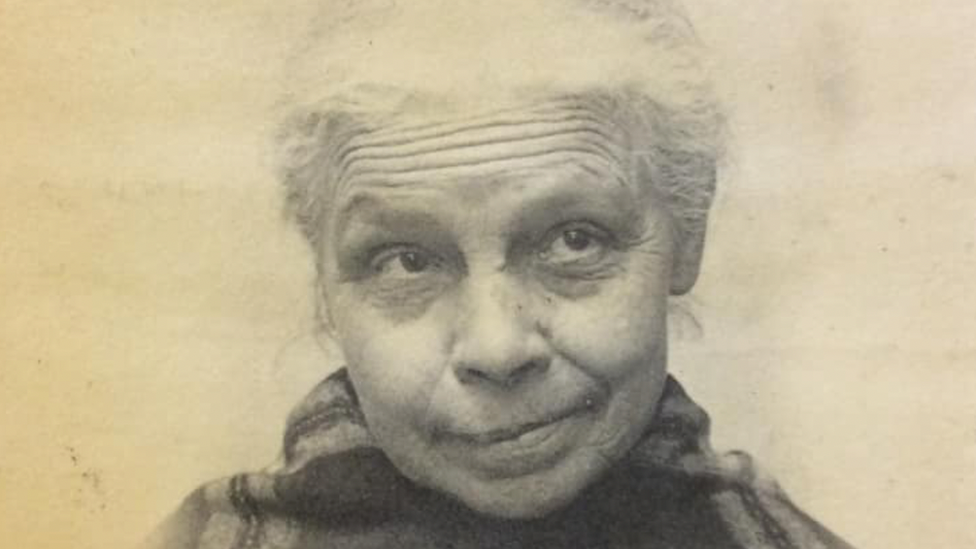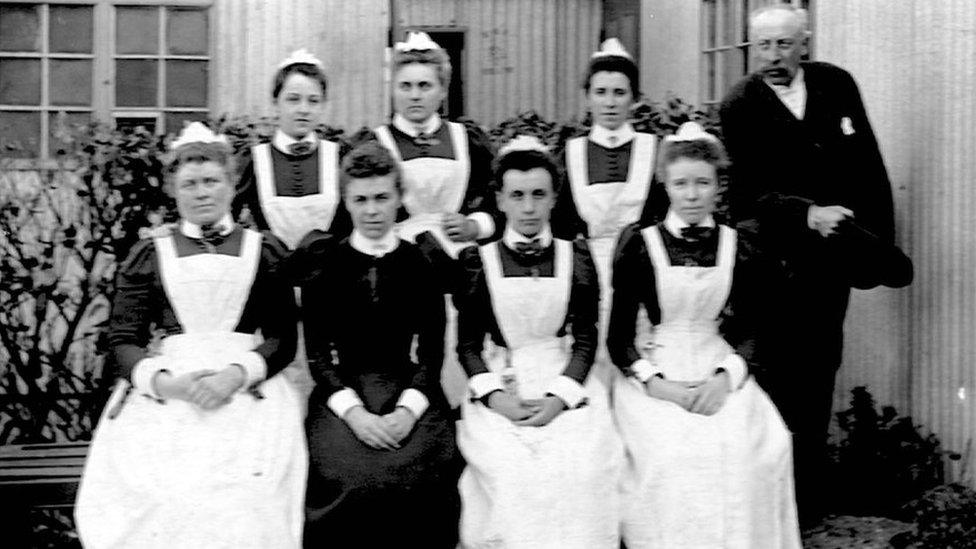How a city led a revolution in psychiatric care

The former asylum in Lincoln abolished the use of mechanical restraint in 1837, according to Prof Nigel Horner
- Published
Asylums often used harsh and restrictive methods to manage patients, including physical restraints such as straight-jackets.
The Hanwell Asylum in Middlesex, under the leadership of Dr John Conolly, was among the first to do away with mechanical restraints on a large scale from 1840, according to The National Archives.
However, Prof Nigel Horner, from the University of Lincoln, said the Lincoln Lunatic Asylum, as it was known, had pioneered the practice.
The asylum opened in 1820 and became the first in the country to achieve total abolition of mechanical restraint in 1837, he said.
Prof Horner said the asylum, which was located close to Lincoln Castle in the heart of the city, was also the first purpose-built establishment to be crowdfunded through a subscription by the people of the parish and, as such, was open to everyone.
"From the very outset, more than half the patients were paupers," he told the BBC's Secret Lincolnshire podcast.
"People think this was mainly an establishment for wealthy people who could afford to send their disturbed relatives here - that's not true."

A painting by William Hogarth depicting a scene inside London's Bethlem Hospital
At the time, some saw asylums as a form of entertainment, paying a few pence on a Sunday afternoon to go and "gawp at the unfortunates who were restrained", Prof Horner said.
However, under the leadership of Robert Gardiner Hill and Edward Parker Charlesworth, who were instrumental in pioneering the shift towards more humane care in Lincoln, it was made quite clear this would not be tolerated, he added.
"Visitors were to be welcomed to actually come and meet patients and to understand the good practices that were taking place, but not to come for vicarious and scurrilous reasons."
Prof Horner talks about how the asylum in Lincoln pioneered a new approach
Prof Horner, who specialises in social welfare history, said the pioneering treatment in Lincoln prompted articles and lectures, with the city gaining national recognition for its work, but added that it was Dr Conolly's work at Hanwell that received much of the recognition.
"The people here [in Lincoln] began the journey in treating people differently," Mr Horner said.
The full interview with Prof Horner is available on the BBC's Secret Lincolnshire podcast.
Listen to highlights from Lincolnshire on BBC Sounds, watch the latest episode of Look North or tell us about a story you think we should be covering here, external.
Related topics
- Published26 February 2023

- Published14 November 2021

- Published14 November 2021
